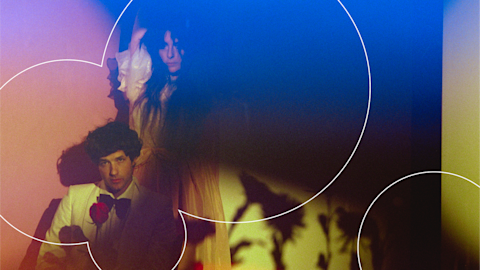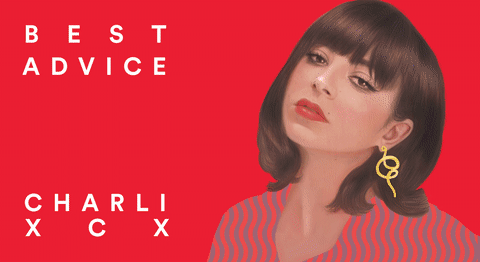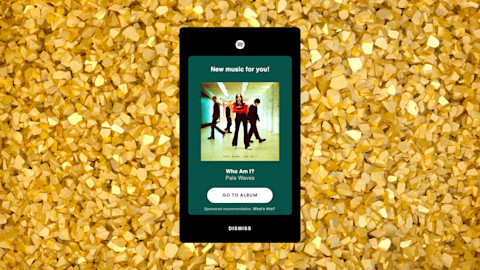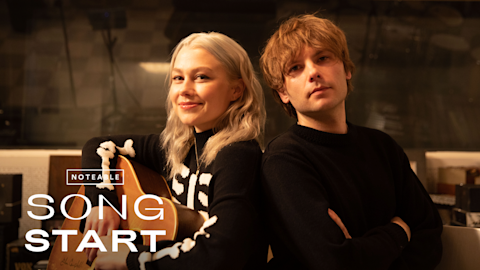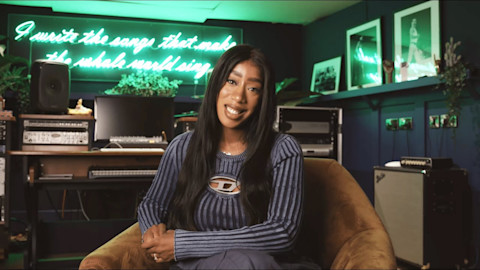You won’t forget your first HIDE performance: the impenetrable smoke, the seizure-inducing lights, and, of course, the towering singer who writhes, stomps, and screams her guts out to beats that feel like battering rams to the abdomen. So yeah, the Chicago duo of vocalist Heather Gabel and Seth Sher cut imposing yet utterly entrancing figures. HIDE has become one of the most talked-about bands in this decade’s massive explosion of new industrial sounds; their debut album, the Dais Records-released Castration Anxiety, is among 2018’s breakout successes.
What’s more, Gabel smashes the mold for the brooding and macho industrial rager. A single mother who originally devoted her time to visual art and graphic design, the 41-year-old howler had no prior experience in making music until she and Sher came together in 2014. We talked to Gabel about balancing career demands with motherhood, the importance for musicians to craft powerful visual aesthetics, and how to foster empowerment and optimism when navigating the dark, transgressive corners of the music world.
After achieving success in art and graphic design, you dove into music with HIDE. It’s gutsy that you tried something new in your late 30s. It’s like a unique spin on the late-career change. Were you nervous about putting yourself out there?
I was attracted to the fact that singing and performing were outside my comfort zone. They seemed scary. But then the thrill started to make me feel empowered. Also, having a child has made me realize just how fast life goes by, and I need to do what I want. I’ve always been self-employed and up for any kind of personal hustle, and HIDE was just a different version of that in the beginning.
To compare photos of you from several years back to now is quite striking. It seems like you have undergone a kind of radical industrialization.
I don’t think I look physically different, but I do feel different. I feel self-possessed and more comfortable with my physical self, and that comes across, I think.
HIDE’s multimedia aesthetic feels carefully crafted. This extends to your social-media channels. Your Instagram videos, for instance, are powerful. Is this an important component to the project?
Definitely. I do all the visuals and artwork, and my bandmate, Seth, okays it. I want HIDE to have a fully developed aesthetic. My own collages are more personal, whereas HIDE isn’t solely about me. The things that inspire my singing and songwriting are universal, and the artwork reflects it.
There’s a throttling sense of catharsis to HIDE. Does the music serve as a vehicle for expelling your personal demons?
I definitely need the release. I need to scream and take up space. HIDE helps me focus my negative energy in ways that are productive and healthy. Hopefully, others can get something out of it.
Is there a theatrical element as well? Do you strive to overwhelm audiences?
Seth and I primarily do that through the music. We then add to it with fog, strobes, and darkness. When we first started playing my movements were measured, but as the songs have gotten more aggressive so have I. As far as putting on a show, being “entertaining” is not where I’m coming from. That said, we recently played a family-friendly street festival in [Chicago’s] Wicker Park. It was daylight, and I was like, “What are we going to do?” So I wore an American flag bikini, drew a big frown on my abdomen, and covered myself in black grease paint. People were like, “What the f*ck? Is this art?”
Do you need to put space between Heather Gabel the HIDE hellraiser and Heather Gabel the nurturing mother of an eight-year-old?
Not really. That’s why HIDE feels so good. I’m angry about what’s going on in this society, and these are the things I need to get out through singing. I find that it comes from the same place as that nurturing.
That’s interesting. There’s the cliché about people turning conservative when they have children. But as a father, I personally find it’s the opposite. I’m more sensitive to injustice.
Definitely. I think part of that is just getting older in general. But yes, as a parent, you really question just how unfair things can be. When you have children everything is magnified. You think about how things affect not just the world but specifically your child as well. It’s a different kind of relationship to the horrors of the world. It’s hard to explain, but being a parent helps me to be a better person, and HIDE is a weird product of that.
Digging deeper into parenting, how do you juggle HIDE with being a single mother?
I know that if I don’t do the things that I need to do in art and music, if I don’t have those outlets, then I can’t be the best version of me. I have a small group of friends who helped me when I moved back to Chicago in 2013. They are [my child] Evelyn’s extended family. I feel lucky that I have these amazing, creative people in my life. Everyone is an artist, writer, musician, or a dancer. My child doesn’t know many people who have jobs they hate. It’s important that Evelyn sees that and not grow up with the pressures kids faced when I was growing up.
You mean the pressures of mainstream conformity?
Yes. I bring Evelyn to my friends’ shows and exhibits, and they sees incredible music and art—total weirdo sh*t. When the time comes for Evelyn to do something on their own I want them to feel like they can do anything they want. I hope that we, my friends and I, and Evelyn’s dad can help make them feel as though there are no limits to their choices in life.
I spotted you and Evelyn at this year’s Trip Metal Fest, in Detroit, and I thought it was so cool that your child was hanging with you and Adam Lee Miller and Nicola Kuperus of the band ADULT. Your crew looked like post-apocalyptic warriors from Mad Max.
Totally! My friends are Evelyn’s friends. Evelyn has their own relationships with them. They’re just as excited to see Evelyn as they are me—probably more so. They support and want to help give Evelyn a sense of autonomy, which, to me, is the greatest gift you can give a child.
In terms of logistics, what are the challenges of being both a single mother and a musician who tours and records?
Weighing the pros and cons of being away from home is challenging. I plan in ways that yield the most quality time with Evelyn. Working a festival close to a tour isn’t always worth it. Even if I need the money, it means an extended amount of time away. There are times, however, when I will choose being away from Evelyn for shows or festival work because it makes it possible for me to not have to work when I’m home with them—over summer vacation, for example. Or, it makes it possible for us to take a trip together.
Does Evelyn ever hit the road with you?
Evelyn hasn’t been on tour with HIDE. We play house shows and really late club shows, not good scenes for an eight-year-old. When I’m on the road Evelyn either is with their dad, who also lives in Chicago, or else my mom, who comes to stay with them.
And then there’s the time all musicians and artists must spend on the phone or on the computer, right?
I keep my computer and phone off as much as possible when I'm with Evelyn, so I can give them my undivided attention.
Do you have future plans for how you will juggle these things when the commitments really begin to pile on?
I don’t have future plans. I’ve never really been like that. This is where my creative energy is pushing me right now. If I weren’t busy with band commitments, I’d be busy with something else. I don’t take on (too much) more than I think can handle though, and my time with Evelyn is what I consider first when opportunities present themselves.
—Justin Farrar
